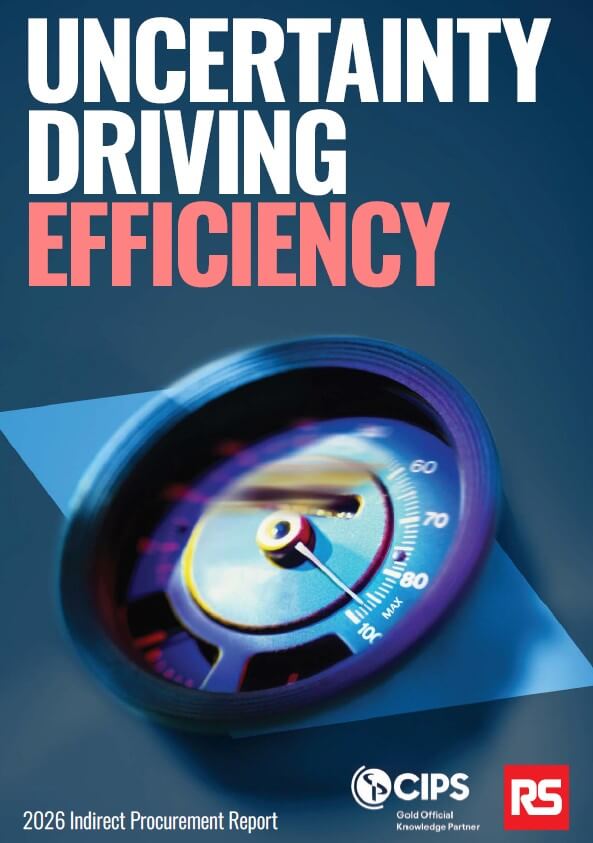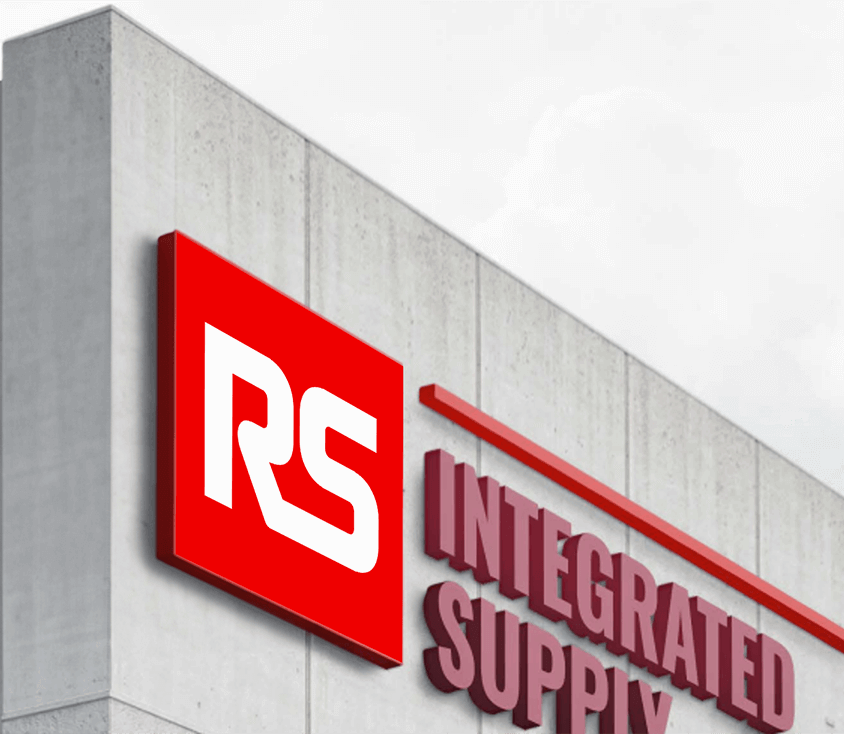Published on
Read time: 5 minutes

Challenging times call for closer relationships between organizations and their MRO suppliers
Strong and successful indirect procurement strategies depend on strong and successful supplier relationships.
According to the 2022 Indirect Procurement Report produced by RS and the Chartered Institute of Procurement and Supply (CIPS), businesses spend an average of £2.5 million with an average of 80 Maintenance, Repair and Operations (MRO) suppliers.
It’s unsurprising, therefore, that organizations look for ways to better manage supplier relationships. The Indirect Procurement Report, based upon a global survey of indirect procurement professionals, also found that 83% of companies use key performance indicators, or KPIs, to measure supplier performance. The most common are on-time delivery (80%), quality (73%) and availability (63%), the latter having risen from 53% in 2021.
Instability, driven first by the pandemic and supply chain disruption, now by inflation, rising energy prices and the war in Ukraine, is further encouraging close relationships between businesses and their MRO suppliers. As the management consultancy McKinsey put it, “We are no longer in a world where assuming ‘an annual RFP will yield 3% price savings’ is a viable operating model.”
“After a year of continual and intensive action to adapt, many procurement organizations have deepened their understanding of their supply chains and deployed new levers. But more can be done.”
How? Read on to find out.
Managing Supplier Relationships for Continuity of Critical Supplies
“When it comes to direct procurement, we need milk to run our business – that’s easy for everyone to understand,” observes Martin Wakelin, UK Head of Indirect Procurement at dairy producer Müller.
“Indirect procurement can be somewhat hidden, though. In processing raw milk, you need chemicals to clean down the machinery afterwards. It’s easy for someone to say they don’t care about that, but actually, it’s fundamental to our ability to supply our product.”
To reinforce the vital role that indirect procurement plays in keeping production running, Wakelin created a scorecard for his team showing what they are doing to ensure continuity of supply for critical products such as chemicals. He also shared the scorecard with the rest of the business.
“It’s absolutely clear at the beginning of the year what we intend to work on – and we get our stakeholders to buy into that list,” says Wakelin. “And that’s how we manage our business. That’s how we manage the indirect procurement team.”
“It’s thinking about our suppliers in a different way than we have in the past”
Martin Wakelin, UK Head of Indirect Procurement, Müller
To ensure continuity of supply is maintained even during constant disruptions, the management of supplier relationships must become more strategic, argues Wakelin. “It’s thinking about our suppliers in a different way than we have in the past,” he says, “ensuring that we fully understand the commodities within our control.”
Rising prices offer an opportunity to put this different approach into action. “The answer is not to continue to batter them over the head and say we will not accept your price increases,” states Wakelin.
“You need to be able to work with a really good supplier to understand the fundamentals of the market, to understand what drives it, to understand how we can stock to protect ourselves and how we can find alternatives.”
“You can then ask questions like: Do we really need these things? Could we do without them? Could we do something differently?” he adds.
The Foundations of Collaboration in Supplier Relationships
These kinds of discussions require confidence about where each category sits within your organization and its relative importance to the business. You also need to know where you stand with the suppliers. The 2022 Indirect Procurement Report, however, reveals that only 9% of organizations actively contract manage 75% or more of their spend on MRO supplies.
The 2020 Chief Purchasing Officer survey by Deloitte likewise found that in terms of wider supply chains, only half had high visibility over their tier one suppliers and 90% rated visibility over wider supply networks as moderate to very low.
This means missed opportunities. Closer relationships between buyers and suppliers can create significant value, states McKinsey, but this can only be built upon a foundation of openness, regular communication, and trust.
“You need to find a really good vendor that understands your business and can add value”
Helen Alder, Head of Knowledge & Learning Development, CIPS
Clarity is vital to improving supplier relationships, agrees Helen Alder, Head of Knowledge & Learning Development at CIPS. “Collaboration is a really good idea in so many ways. But you need to find a really good vendor that understands your business and can add value,” she says.
Resilience And Innovation: Maximizing Value from Closer Supplier Relationships
What does the added value that comes from closer supplier relationships look like?
Greater resilience is one benefit. “The biggest challenge, and one we always face, is the changing market dynamics and shifting supply,” says Debbie Bowring, President of RS Integrated Supply. “You cannot eliminate risk from the supply chain. But you can find suppliers willing to work with you in facing those challenges.
“The value of those kinds of supplier relationships is in the productivity that develops in your business and the introduction of innovative ideas. The combined benefit is better risk management.”
“Supplier relationships built on trust create significant advantage throughout the process.”
Costi Campi, Senior VP, Global Procurement, RS Integrated Supply
The ability to harness supplier expertise and capabilities is another. “Supplier relationships built on trust create significant advantage throughout the process,” says Costi Campi, Senior Vice President, Global Procurement for RS Integrated Supply. “You have more trust in the information suppliers provide, which leads to openness to new ideas.”
“It is an opportunity but also a challenge for procurement professionals to keep up with all the changes.”
Costi Campi, Senior VP, Global Procurement, RS Integrated Supply
“New software and solutions are introduced every day. It is an opportunity but also a challenge for procurement professionals to keep up with all the changes and innovation in the industry.”
Conclusion
Above all, it’s about building trust between customers and suppliers, reiterates Simon Hilton, Senior Vice President, Business Development for RS Integrated Supply. This can only be done by openness on both sides, so sharing knowledge and understanding each other’s business opens opportunities to innovate.
“It’s not quantity of suppliers, it is the quality” says Hilton. “Suppliers who understand your business culture and how you wish to operate, are more willing to help you in optimizing your MRO procurement processes.”





